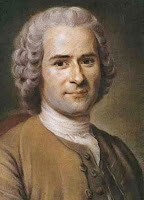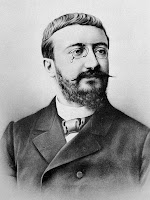Rationality
is the idea of being in accordance with reason and logic. When rationalistic
explanations are given for human behavior, emphasis is given on logical,
systematic, and intelligent thought processes. Rationality opposes the usage of
emotions and other elements that are generally considered to be irrational,
such as superstition, in explaining behavior and events.
The
idea of rationality can be traced back to rationalism. Rationalism is the
philosophical belief that knowledge can be gained by engaging actively in
systematic mental activity. The rationalists believed that the mind actively
interacts with information and derives some meaning out of it, suggesting that
the mind is active.
Further, the rationalists believed that many of the processes involved among human beings are innate. They suggested that innate mental structures, operations, or abilities are involved in analysing thought.
The
rationalists also felt that the idea of truth cannot be determined by merely
experience and beliefs. According to them, conclusions about truth must be
ascertained by making logical deductions and analysis, emphasizing a rational
system in arriving at truth.
 |
| Baruch Spinoza |
 |
| Rene Descartes |
information, an active mind, innate processes, and logical analysis, stressed on deduction and a top-down approach to gaining knowledge. Rene Descartes, Baruch Spinoza, and Gottfried Wilhelm von Leibniz are considered to be the three great modern rationalists who initiated the idea of rationalism. They emphasized on innate ideas, an active mind, and logical and intellectual processes. Their idea of rationality, eventually led to the Age of Reason, also known as the Enlightenment, in the 18th century.
 |
| Gottfried Wilhelm Leibniz |
In
opposition to rationalism, a number of scholars felt that an emphasis on
intellect and rationality is too dry to understand the essence of human nature.
This idea is referred to as irrationalism, and emerged as a reaction against
the Age of Reason, in the 19th century. Proponents of irrationalism
believed that instead of logic and intellect, there should be an emphasis on
the unique human experiences, feelings and emotions, and the will.
The
idea of irrationalism was strongly represented in romanticism or the Romantic
movement, which gave emphasis to subjectivity. Scholars within this philosophy
believed that in going with the idea of rationalism, somewhere, the individual
human gets lost. They, thus, felt that in explaining human behavior, feelings
and emotions, give a lot more meaning. This is what is said to be the Romantic
movement.
 |
| Friedrich Nietzche |
 |
| Jean-Jacques Rousseau |
 |
| Soren Kierkegaard |
The debate of rationalism versus irrationalism has been continuing for years. It is even prevalent in contemporary psychology, where it has been found that psychologists often favoring either rationalism or irrationalism. A good example of this debate can be found in the modern concept of intelligence.
 |
| Lewis Terman |
 |
| Theodore Simon |
 |
| Alfred Binet |
 |
| William Stern |
The earlier notion of intelligence can be viewed as more of a representation of the philosophy of rationalism. A number of psychologists found this notion of intelligence to be very limited. Moreover, they felt that intelligence being measured by the existing intelligence tests is more about academic abilities, and may not be useful in everyday life.
 |
| Peter Salovey |
 |
| John Mayer |
 |
| Howard Gardner |
Gardner,
through his theory of multiple intelligences, was opposing the early notion of
intelligence that psychologists had found to be too simplistic and limited in
scope. There have been other psychologists, much before Gardner, who have been
trying to describe intelligence beyond academic abilities.
 |
| Edward Thorndike |
 |
| David Wechsler |
Like Thorndike, intelligence theorist David Weschler, also gave a broader perspective of intelligence. In 1944, Weschler defined intelligence as the global capacity of the individual to act purposefully, to think rationally, and to deal effectively with the environment. Weschler also differentiated between intellective and non-intellective elements of intelligence – intellective elements include academic abilities, and non-intellective elements include affective, personal, and social factors.
Both
Thorndike and Weschler were describing intelligence that was different from the
earlier notions. They were still not completely dissociating intelligence from
rationality, which can be reflected in Thorndike’s description of “acting
wisely” and Weschler’s description of “to think rationally”. However, they were
also describing intelligence in ways that was not just limited to academic
abilities.
It
was these initial diversions from the early notions of intelligence that
eventually led Salovey and Mayer to come up with the concept of emotional
intelligence. It is quite clear that the term used by Salovey and Mayer
comprises of two words that are said to be the opposite of each other –
“emotion” and “intelligence”.
Emotions
have often been described as disturbances, something that is disorganized and
chaotic, and leads to a loss of control. It has also been suggested that
emotions distort judgment. Emotions, in this way, are the opposite of logic and
reason. This difference between emotions and rationality can be traced back to
the rationalism versus irrationalism debate.
By
introducing a term like “emotional intelligence”, Salovey and Mayer brought
together these two opposing perspectives, that is, rationalism and irrationalism.
This is further reflected in their definition of emotional intelligence, which
talks about monitoring one’s own and others’ emotions, and using it to guide
one’s thinking and actions. The latter part of this statement is representing
aspects of rationality.
Further,
emotional intelligence involves understanding one’s emotions, which enhances
self-awareness, helps in not being overwhelmed by the situation, allowing
proper decision making. Additionally, emotional intelligence involves the
understanding of the emotions of others, which allows having positive personal
and social interactions, managing conflict, and thus, helping in not making
erratic and inappropriate judgments.
In
a way, Salovey and Mayer in describing something like emotional intelligence
are suggesting to use emotions in an intelligent manner. Accordingly, the
emotions that have often been said to distort judgment, if used properly, if
channelized in the right direction, can actually be used to enhance judgment.
Therefore, emotional intelligence can perhaps be viewed as a concept that is
merging the two opposing philosophical perspectives of rationalism and
irrationalism.
The
debate of rationalism versus irrationalism has been going on for years. Rationalism,
the philosophy emphasizing logic and reason, and irrationalism, the philosophy
emphasizing the use of emotions, have been viewed as strong oppositions.
However, the emergence of the concept of emotional intelligence has brought
these two opposing philosophies together, in the sense that one compliments the
other. It can therefore be said that the concept of emotional intelligence
takes a mid-way path of the rationalism versus irrationalism debate.
This article can also be found on the blog - History Of Psychology

No comments:
Post a Comment